Calgary weather: Southern Alberta under a snowfall warning with increasing impacts to travel
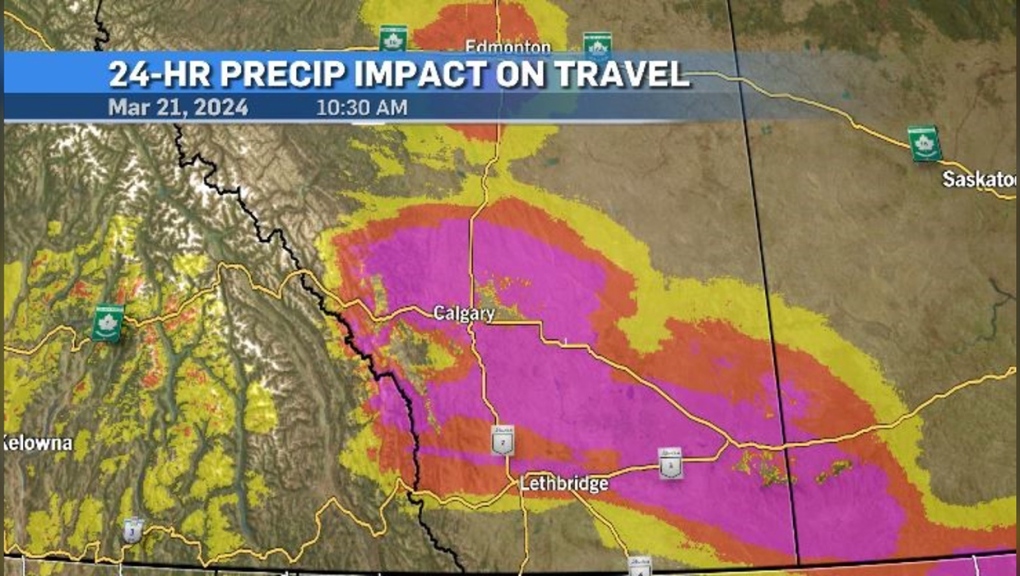 Caption: Travel along major and minor corridors in southern Alberta has been significantly impacted (pink) by the precipitation over the past 24-hours.
Caption: Travel along major and minor corridors in southern Alberta has been significantly impacted (pink) by the precipitation over the past 24-hours.
(Travel along major and minor corridors in southern Alberta has been significantly impacted (pink) by the precipitation over the past 24-hours.)
As expected, a snowfall warning first issued in central Alberta on Tuesday was further expanded to include all of southern Alberta by Thursday morning due to the synoptic setup.
A low pressure system situated over southern British Columbia and southern Alberta has stalled out and is dumping heavy, wet snow in a long-duration snowfall event.
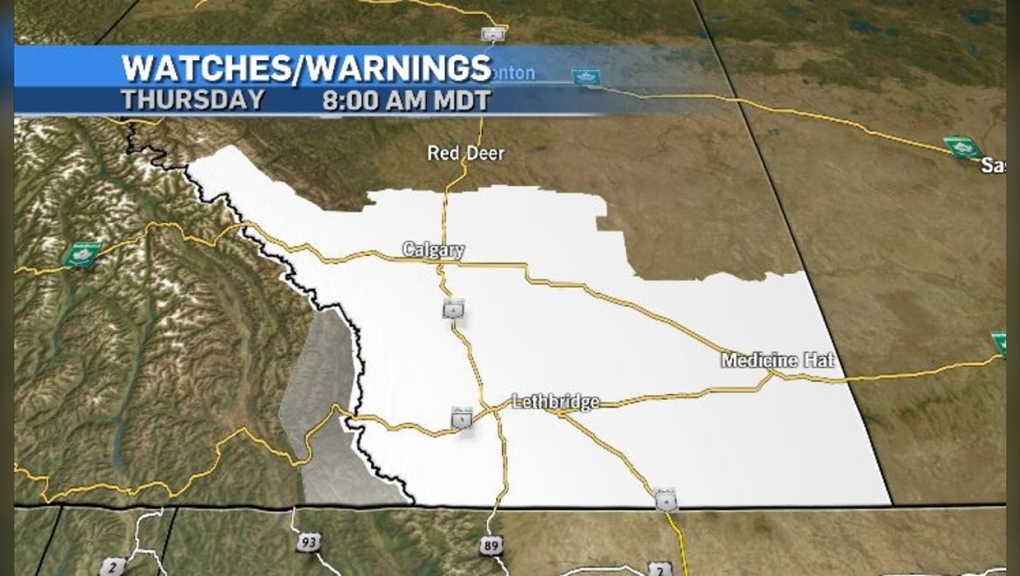 Caption: Snowfall warnings (white) issued by Environment and Climate Change Canada, cover all over southern Alberta on Thursday, Mar. 21, 2024. A long-duration snowfall event is expected to produce 10 to 30 centimetres of snow to the region.
Caption: Snowfall warnings (white) issued by Environment and Climate Change Canada, cover all over southern Alberta on Thursday, Mar. 21, 2024. A long-duration snowfall event is expected to produce 10 to 30 centimetres of snow to the region.
(Snowfall warnings (white) issued by Environment and Climate Change Canada, cover all over southern Alberta on Thursday, Mar. 21, 2024. A long-duration snowfall event is expected to produce 10 to 30 centimetres of snow to the region.)
The counter-clockwise circulation around the low is creating isentropic lift – or upsloping – on the leeward side of the Rocky Mountains. A steady source of Pacific moisture continues to feed into the system producing a large region of dendritic growth (snow growth) in the atmosphere.
Typical of a set-up like this – these systems can be persistent unless otherwise acted upon by an external influence.
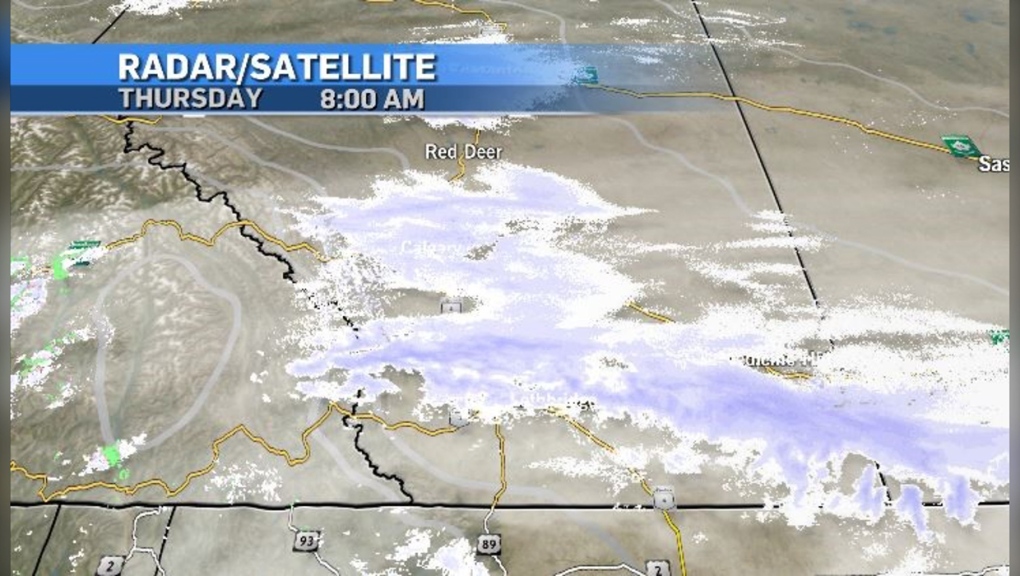 A shortwave trough is expected to move in from Washington State and disrupt this pattern which should start the migration of a low complex from the north into the southern Prairies. Snow is expected to end over the weekend, however cold, dry air will take over, keeping daytime highs well-below seasonal and also below freezing.
A shortwave trough is expected to move in from Washington State and disrupt this pattern which should start the migration of a low complex from the north into the southern Prairies. Snow is expected to end over the weekend, however cold, dry air will take over, keeping daytime highs well-below seasonal and also below freezing.
A shortwave trough is expected to move in from Washington State and disrupt this pattern which should start the migration of a low complex from the north into the southern Prairies.
Snow is expected to end over the weekend, however cold, dry air will take over, keeping daytime highs well-below seasonal and also below freezing.
In their snowfall warning early Thursday Environment and Climate Change Canada (ECCC) noted “most areas from Banff through to the Cypress Hills have reported 10 to 20 cm [of snow] so far,” with the agency forecasting an additional five to 10 centimetres of snow by the end of the day.
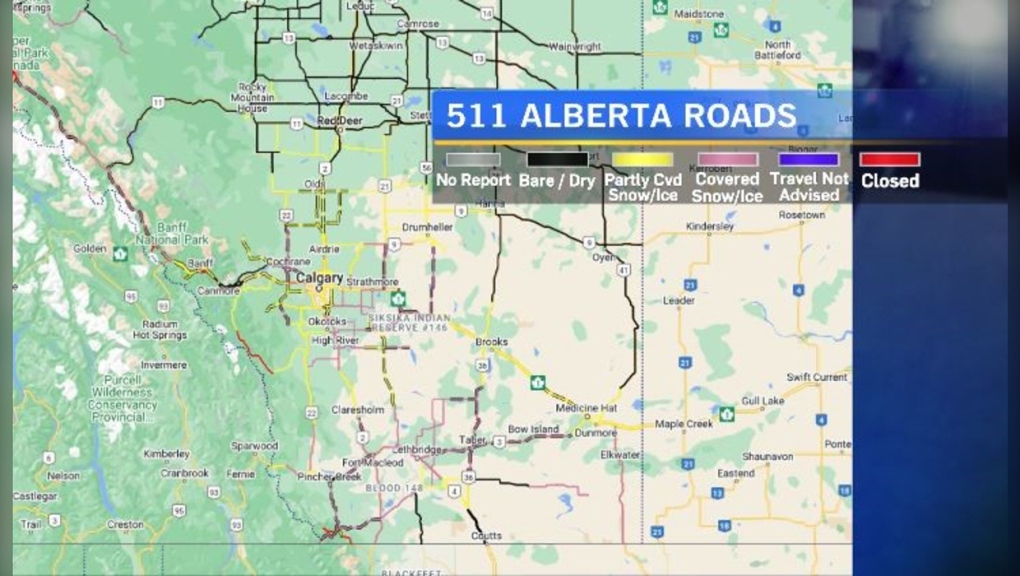 As of 10:30 a.m. Thursday, 511 Alberta was reporting highways conditions in the aforementioned area as compromised.
As of 10:30 a.m. Thursday, 511 Alberta was reporting highways conditions in the aforementioned area as compromised.
As of 10:30 a.m. Thursday, 511 Alberta was reporting highways conditions in the aforementioned area as compromised.
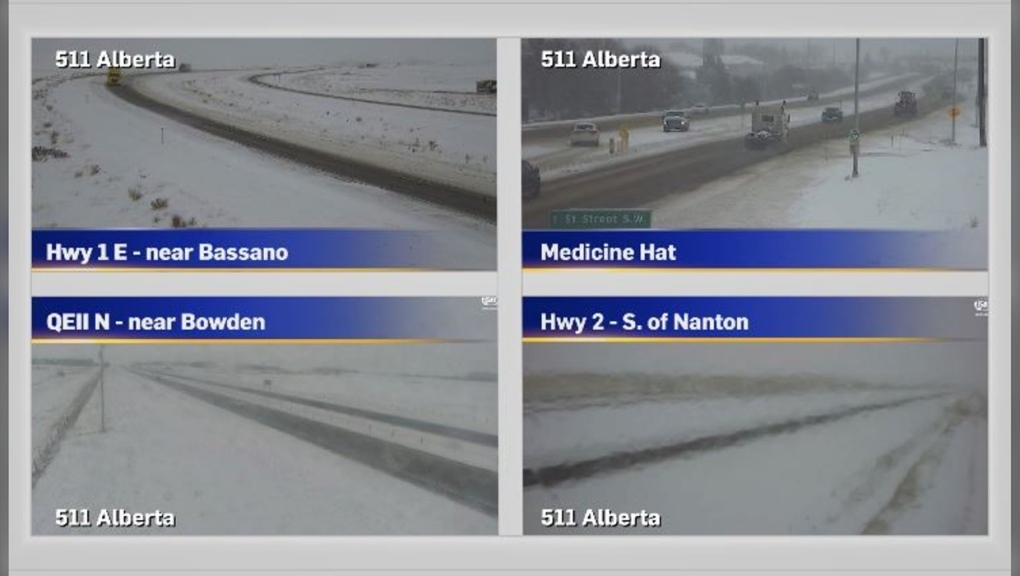 The 511 Alberta highway cameras appeared to corroborate those road condition ratings with snow and ice seeming to accumulate on roadways and shoulders at that same time.
The 511 Alberta highway cameras appeared to corroborate those road condition ratings with snow and ice seeming to accumulate on roadways and shoulders at that same time.
The 511 Alberta highway cameras appeared to corroborate those road condition ratings with snow and ice seeming to accumulate on roadways and shoulders at that same time.
Surfaces like sidewalks and pathways have also been affected – in part due to the unusually warm weather from last weekend.
Surface temperatures were quite warm when this weather pattern flip first occurred, and for a variety of reasons, many surfaces ended up with a layer of water underneath the snow.
As temperatures dropped and precipitation accumulated, some of that melted snow began to freeze making surfaces slippery.
By Thursday morning the atmosphere remained below zero and a risk of patchy freezing drizzle near the U.S. border was mentioned in the snowfall warning from ECCC.
Freezing drizzle is formed when large “super-cooled” water droplets (that have been suspended due to a minor lifting mechanism) become heavy and fall and freeze on contact, often forming a thick layer of ice.
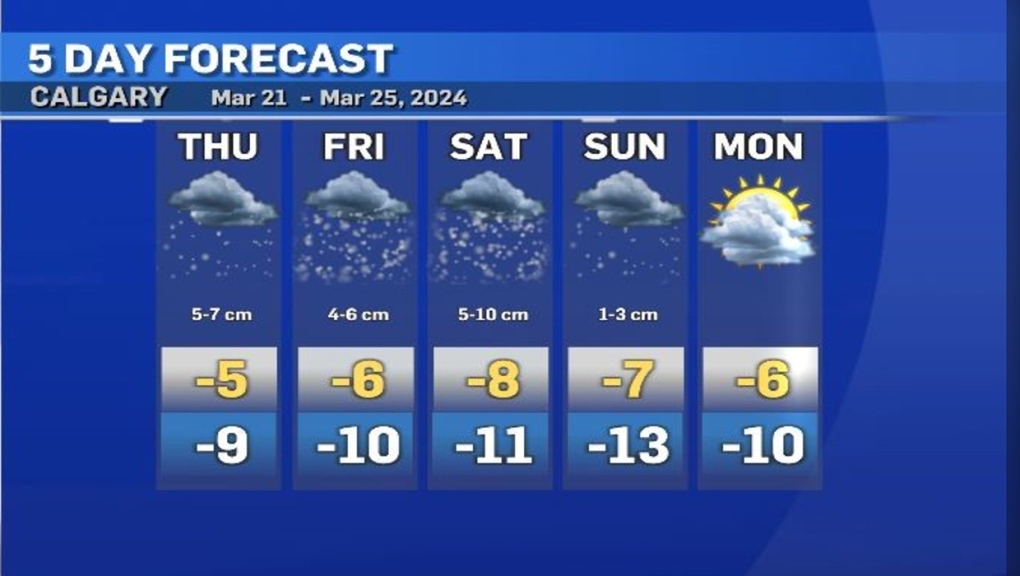 5-day forecast for Thursday, March 21, 2024
5-day forecast for Thursday, March 21, 2024
There will be very little sunshine in Calgary over the next four days, so significant melting is unlikely without some sort of cause – like a melting agent.
Daytime highs will start to recover by the middle of next week, getting closer to the average maximum of 5 C.
For the latest weather advisories from ECCC click here., and click here for the current Alberta road condition from 511 Alberta. Drive BC highway conditions can be found here.
View original article here Source









